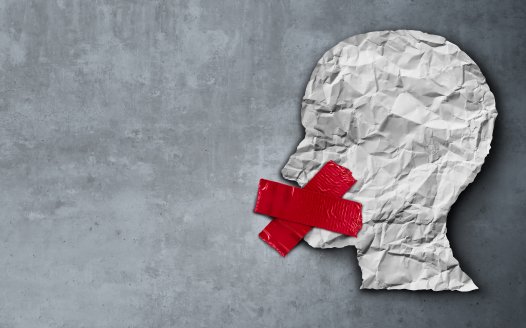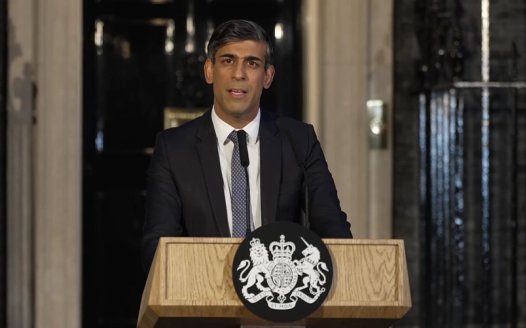CofE talks to the electorate, but is anyone listening?
Posted: Mon, 8th May 2017 by Terry Sanderson
Religious leaders are free to speak out on politics, but they shouldn't expect their views to be given any special weight, and politicians shouldn't assume that clerics speak for anyone but themselves, argues Terry Sanderson.
The Church of England has published a 'pastoral letter' which calls essentially for the general election to be driven by religious considerations. It suggests that religion will be at the heart of the decisions that the country will make on 8 June. And maybe pigs will fly.
Reading the letter one gets the impression of it being written by men living in a delusional state, or maybe in a bubble of piety that does not permit them to see what is happening in the real world around them. The British people generally have no problem with politicians having a personal faith. But they do have a problem with politicians manipulatively waving their religion as a signal of moral superiority.
However, many politicians still labour under the impression that churches have a significant constituency that can be corralled into voting for them. This is despite research showing that church-goers do not have a hive mind, they very much think for themselves and reach a variety of decisions on issues such as women's rights, gay rights, abortion and all the other things that exercise their leaders.
There is no single religious constituency that politicians can tap into. Some Christians may regard themselves as sheep of the Lord, but they certainly don't act like sheep at the ballot box. Of course, in one sense, religion has already figured in the campaigns of the political leaders, but not in the ways that the CofE bishops would like.
Mrs May (who reminds us almost weekly that she is a vicar's daughter and church-goer), made the mistake of involving herself in the ludicrous CofE campaign about Cadbury's Easter Eggs in April. She was made to look silly as she indulged such triviality at a time she was charged with negotiating the whole future of this nation.
Despite this, she still insists that her faith will influence the decisions she makes. The irritating suggestion is that her Christianity imbues her with some kind of special moral insights. This gets up the noses of many of the majority of Britons who don't have a religion.
She would be wise not to push this evangelical aspect of her personality too hard or she might find herself getting the same response at the Jehovah's Witnesses do when they come knocking – the door slammed in her face.
Tim Farron of the LibDems almost had his election campaign derailed before it had started by questions about his evangelical Christianity and its nasty attitudes to the LGBT community.
He struggled for a while, but seems to have manoeuvred himself through the crisis. The whole episode has probably taught him a hard lesson that politics and religion really are better in their own domains, clearly separated.
Jeremy Corbyn, previously a life-long atheist, suddenly reminded us that he probably attends more religious ceremonies than most, as part of his duties, and he enjoys them. He is reluctant to tell the bishops to butt out.
The 'pastoral letter' does not tell anyone who to vote for. That would be truly beyond the pale. Mostly it is priestly platitudes, meaningless enough to qualify for Thought for the Day. But it does make the case for more religious influence and involvement in the political process.
The question that needs to be asked, though, is why should it have more influence? The Church of England is now so numerically small as to represent little more than a sectarian rump (and even its remnants are irretrievably split on the issues of women and gay people). Its claims to be "the national church" are empty and unconvincing.
Yes, it still has the vestiges of its previous power - its buildings and the enormous wealth that continues to grow at public expense. But it clearly does not have the support of the nation. Attendances at its churches are minuscule and continue to decline. People no longer feel the need to have priests telling them how to live a good life. Its only real raison d'etre is its schools.
And, of course, the letter makes the case for more "religious literacy" in education. It says:
"Contemporary politics needs to re-evaluate the importance of religious belief. The assumptions of secularism are not a reliable guide to the way the world works, nor will they enable us to understand the place of faith in other people's lives."
This is the usual misrepresentation of secularism as being anti-religious. The NSS has proposed that religious education should be reformed to help children understand religion better as a social phenomenon and as something that is important to some people. The much misused phrase "religious literacy" is too often a cover for the religious to have even more influence in schools and – as at present – frequently misuse it as a platform for proselytising. What secularists want to see is a balanced and objective approach to religion, and that is the last thing single-faith schools want to see.
Perhaps the most telling and deluded part of the letter is this sentence:
"Political responses to the problems of religiously-motivated violence and extremism, at home and overseas, must also recognise that solutions will not be found simply in further secularisation of the public realm."
This is as wrong-headed as it is possible to be. A secular response is the only response that will stop this horrendous violence.
More religion, more theology means more conflict. All these religious wars are based on disagreements over tiny matters of theological interpretation. Or so it seems to those of us looking at it from the outside.
The Church asserts that only it can provide the answer. The problem is that the Church is often at the heart of the problem.
We need to put theology back into church and keep it well away from politics. The harm it causes is clear for all the see. If only they could see it, the bishops would realise that secularism is the only way to protect religious minorities from their bullying, and sometimes murderous, larger cousins.
But such a vision seems not to penetrate the bubble surround the religious hierarchies of this country or any other. That is because most religions see themselves as the true guardians of power. They consider it their right and duty to run the world.
The Church of England's attempt to insert further itself into politics is wrong and potentially dangerous. Its hey-day has passed and there are other challenger religions that will soon be able to make claims to being more important than Anglicanism in England.
We need to make sure religion and politics are separated, and there is still long way to go in this country to achieve that.
Terry Sanderson is the president of the National Secular Society. The views expressed in this article are those of the author and do not necessarily represent those of the NSS. You can follow Terry on Twitter @TerrySanderson4







